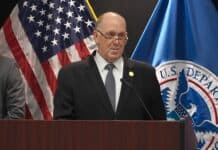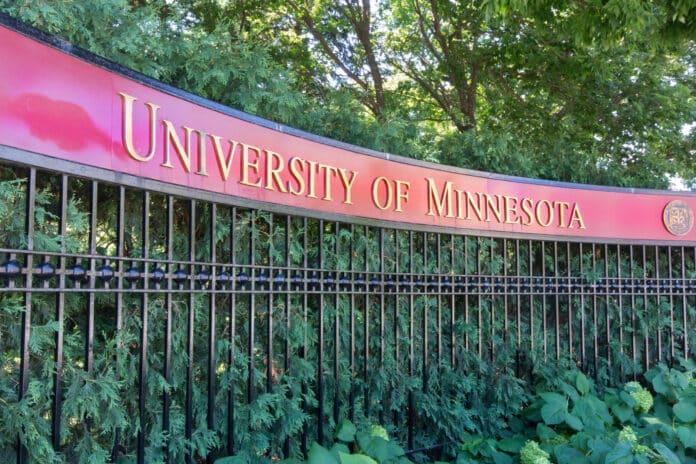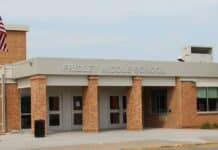(Center of the American Experiment) — American Experiment has well documented why the particular brand of ethnic studies coming to all Minnesota K-12 public school classrooms is concerning. Far from the more commonly understood meaning of ethnic studies— teaching about the many unique histories and contributions of and challenges faced by the various groups that make up our multi-ethnic democracy—Minnesota’s “liberated” version will infuse political dogma into classrooms and teach students to view everything through a racial lens.
So, where will educators get the instructional materials to promote this narrow political ideology?
One resource will be the Center for Race, Indigeneity, Disability, Gender, and Sexuality (RIDGS) Studies at the University of Minnesota, whose database of K-12 ethnic studies lesson plans was introduced to educators during the teachers’ union MEA conference last Thursday (Oct. 17).
While we don’t know what these lesson plans include, we do know what RIDGS focuses on. According to its website, RIDGS was created “to support innovative research, teaching, and community-building for scholars engaged with issues of race, indigeneity, gender, and sexuality” and is “dedicated to bringing faculty and students together to pursue lines of inquiry that challenge systems of power and inequality, assert human dignity, and imagine social transformation.” RIDGS “facilitates translation of faculty research to invigorate and elevate public discourse about social identities, power, and inequality.”
A picture showing “De-Fund the Police,” “Justice 4 George,” and “Black Lives Matter” posters links to RIDGS’ Racial Justice Resources page. Resources on student activism, police abolition and reparations, and decolonizing museum, art, and cultural spaces, to name a few, are some of the main links listed.

Resources on racial capitalism and prison abolition are also included within the abolition and reparations section. (Minnesota’s new high school social studies benchmarks include requiring students to “develop an analysis of racial capitalism, political economy, anti-Blackness, Indigenous sovereignty, illegality and indigeneity” (9.5.24.2); sixth graders will “describe the goals, offenses, penalties, long-term consequences and privacy concerns of Minnesota’s juvenile justice system and evaluate the impact on youth, including those from historically disenfranchised groups” (6.1.4.2).)
“Anti-racist” documents link to a white supremacy triangle (see below) and list out “stages of white identity development” to “facilitate growth for white folks to become allies, and eventually accomplices for anti-racist work.”

Here’s RIDGS’ statement following pro-Palestinian student protests at the U of M in April 2024 that included encampments and a “die-in.” A handful of students were arrested on trespassing charges.
“The Center for Race, Indigeneity, Disability, Gender and Sexuality Studies (RIDGS) recognizes that most of our constitutive units were born of student protest and struggle against exclusionary and hierarchical power structures. We, faculty at the Center for RIDGS Studies, therefore condemn the deployment of police and other punitive measures against students on our campus and elsewhere. As fields that prioritize decolonial, bottom-up, and critical production of knowledge, we advocate for an environment in which these ideas can be freely explored and applied to our most pressing challenges. We see it as positive and necessary for students to peacefully speak out in regard to issues of settler colonialism, apartheid, white supremacy, gendered violence and genocide. We decry any discriminatory or objectionable language that is dehumanizing and support movements that further socioeconomic justice.
…
When university leaders mobilize the police to remove and silence students on such charges as ‘trespassing,’ we the members of the Center for RIDGS Studies point out that the University of Minnesota has long trespassed on Indigenous lands. University leadership and those administrators holding decision-making power should reflect and recognize their duty to ask what the university must do to promote justice and repair and not inflict further harm.”
While teachers are not required to use RIDGS’ ethnic studies lesson plans, and school boards will select the textbooks/curricula to teach the new ethnic studies requirements, as U of M materials these will no doubt be a go-to resource.
This article was originally published by Center of the American Experiment.
Catrin Wigfall
Catrin Wigfall is a Policy Fellow at Center of the American Experiment.
Catrin’s experience in education and policy research began during her time with the Young Leaders Program at The Heritage Foundation. Her interest in education policy led her to spend two years teaching 5th grade general education and 6th grade Latin in Arizona as a Teach for America corps member. She then used her classroom experience to transition back into education policy work at the California Policy Center before joining American Experiment in February 2017.
Catrin graduated summa cum laude from Azusa Pacific University in California, where she earned a Bachelor of Arts degree in Political Science.











